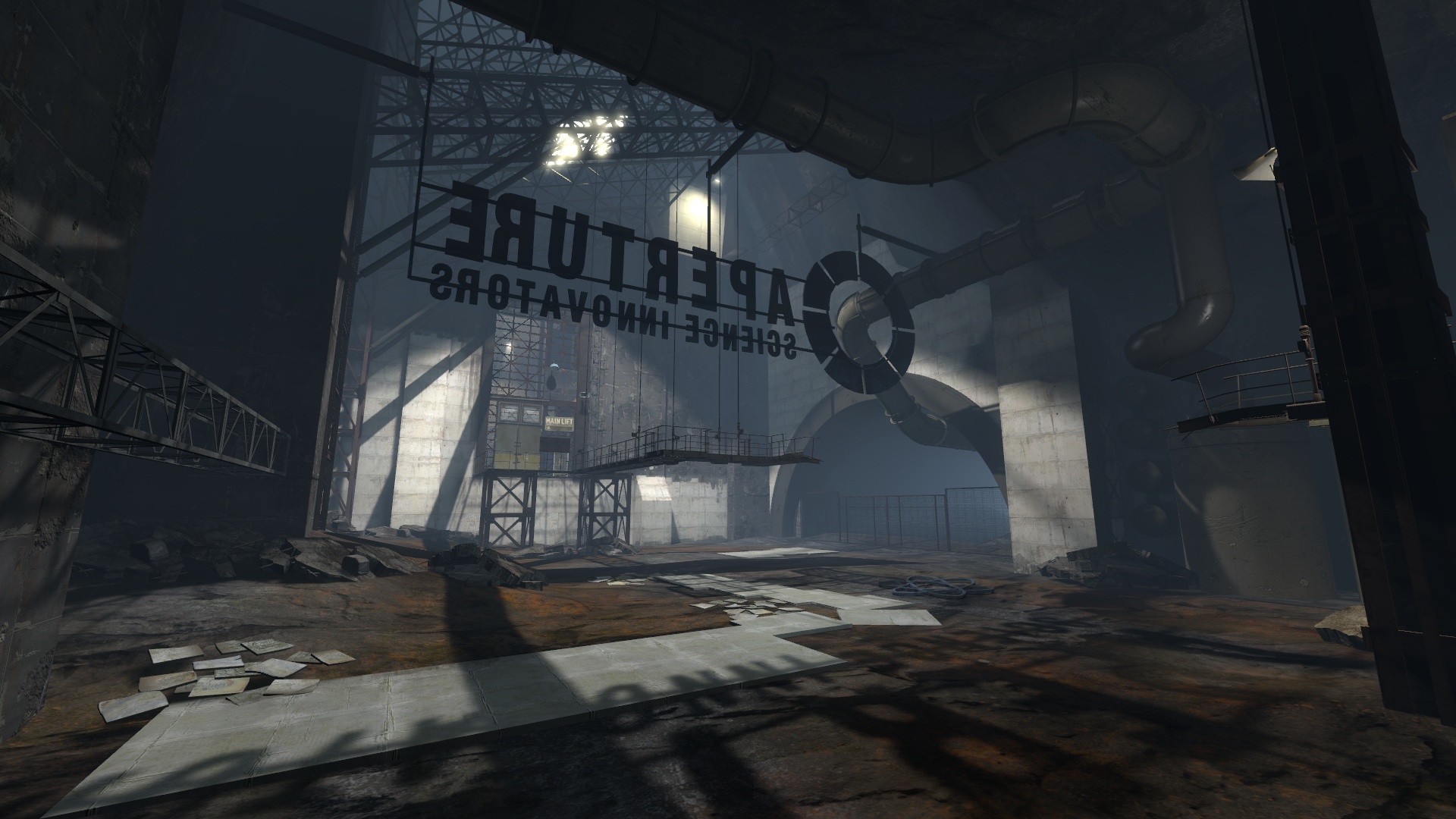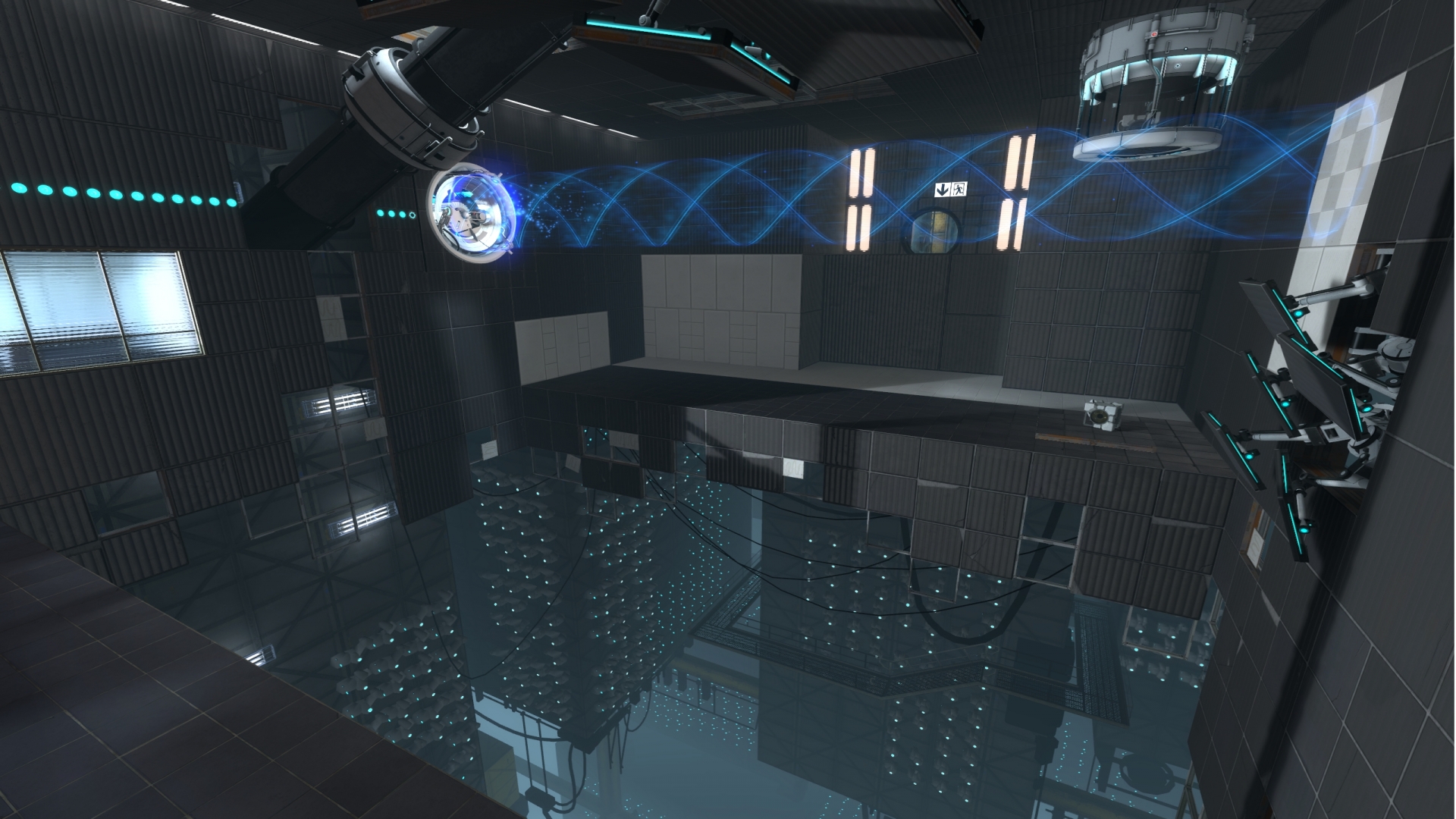
This was a triumph... for gamers and gaming alike. That is all.
---
Valve has gone off the grid for the longest time. Of course, not literally. They've released Left 4 Dead 2 most recently, and have been providing steady stream of content to TF2. But their last emotionally-riveting, high-octane other-world adventure in the Half-Life universe was in 2007. That's four long years we've been waiting.
In that time, Call of Duty had been released several times over, Minecraft stole the hearts and minds of many gamers, and Blizzard initiated world domination with Starcraft II. Then there was Bioshock, Dead Space, Mass Effect, and Dragon Age for people to turn to for their absorbing single-playering fix.
But everyone who appreciates games knows the sheer importance of the Half-Life franchise. Each release can be likened to a season of Lost that is fanatically anticipated and continually succeeds to tops its predecessor. And when it was revealed that the Portalverse, and everything Aperture Science had major tie-ins to Black Mesa and the world of our favorite mute hero Gordon Freeman, our minds melted at such holy revelations.

I hope I've managed to introduce you to the sheer significance that Portal 2 represents, for me personally at least. It's not only an exciting game in itself, but surely Valve's teaser for our most awaited title, the one that will change the world of gaming - the game they'll either call Half-Life 2: Episode 3 or Half-Life 3.
But let's look at Portal 2 as a standalone title.
Portal was a highly refreshing title back in '07, in a market of oversaturated hyper-testosterone shooters and short attention-spanned gameplay. I was afraid Portal 2 would suffer from sequel-litis, bog down what made the original title such a breath of fresh air - but instead of trying to broaden the world of Aperture Science which is a nigh impossible task given its narrow focus on the concept of science, test chambers and laboratories - Valve both metaphorically and literally deepened the world.
What do I mean by this?
Given the minimalistic approach of Portal with its small cast of two characters, GLaDOS and you, Portal 2 adds just two more to the mix, Wheatley and Cave Johnson - enough to be a catalyst to drive the plot forward whilst maintaining the Zen and solitary sensibilities of the Portalverse. Wheatley, voiced by Stephen Merchant is a powerhouse of comedy. His bumbling, moronic ways is such a stark contrast to the cold, intelligence of GLaDOS (voiced by the ever wondrous Ellen Mclain) that it works perfectly and brings a new dimension to the world of Aperture Science.

You will joyfully relish the chance to learn more about GLaDOS, her inception and of her even larger role in the world. Cave Johnson, voiced by a kickass J.K. Simmons reminiscent of his Jonah Jameson character in the Spiderman movie, is introduced as the CEO and founder to this mega-mysterious corporation. His left-behind audio recordings to motivate test subjects are profound relics to a bygone era of uninhibited pursuits for scientific progress, and how one man's dreams for humanity's greatness can have such widespread repercussions into the future. Valve's favored style of storytelling shines through here, minimizing exposition and emphasizing plot-reveals through gameplay. It's a bit like Bioshock also in that you're dropped in a world after it has gone to the dogs, is deserted, and all that is left, is for you to explore it and get a sense of what had gone on before through tapes and pictures.
All I can say is that the story, the writing is so much deeper, more riveting, and darkly funnier than Portal, and I have no doubt on that front alone, Portal 2 will garner many awards.
But more importantly, let's look at gameplay.
Portal 2 is all about shooting portals. Simple enough? Apparently so. And yet so deliciously challenging. In the same way that conducting and solving tests creates euphoria in the artificial intelligence in Aperture Science, you'll be pushed just enough so that it frustrates, but not so much that you want to turn off the game. And that's important - if a puzzle game makes you want to turn it off, that defeats the purpose entirely and as a game it would fail. But with Portal 2, you just want to keep trying until you succeed, lest you are beholden to the dripping poison that is GLaDOS' voice. Even more so, you just want to keep going to see how the fantastic story unfolds.

The puzzles are not overtly difficult. They pose enough of a challenge in the ways you need to think about solving them; the first answer that comes to mind is never always the right one but I can guarantee most people will get it. But it's amazing that Valve has managed to create a butter smooth difficulty curve that never feels too easy or too hard at any time. It's a testament to their endless gameplay testing over and over till they hit pitch perfect note for a puzzle; I'm sure they have it down to a science as it were - very scary, I just realized that Aperture Science's obsession for testing is just a reflection of Valve's. They must have their own test lab rats tucked away somewhere in Seattle.
As a whole, the game is definitely more challenging than the original Portal, which is a plus for content-hungry gamers. There are a few new obstacles, or ways to solve puzzles, in the multi-colored gels, faith plates, light bridges and tunnels. Now, instead of just shooting portals, you'll have to manipulate surfaces to do more, whether it's to jump further, run faster, or be able to shoot portals through surfaces that you were previously unable to. The faith plates, light bridges and tunnels offer new forms of transportation of self or objects. Safe to say, none of it are bloatware, definitely worthy additions that maintain the tight and fun nature of gameplay for Portal 2 so by the time you get to the final boss fight, everything you've experienced and learned up till then becomes a necessary tool in your arsenal.
Here are a couple of criticisms I have for the game. One, Valve favors a hunt-for-a-portal-shootable-surface instead of always laying out an entirely solvable puzzle in front of us. Of course, when we're in the test chambers, everything is self-contained. But when we traverse the parts of Aperture Science outside the labs, it's as if Valve's idea of a "puzzle" then is to look for an obscure, hidden wall that we can shoot a portal through otherwise we cannot progress.

Two, whilst the game clocks in at between 8 - 10 hours of gameplay, which is a decent length, 2/3rds of the way through, it feels slightly draggy and that's probably Valve's well-intentioned attempt to plump out the content by way of more puzzles; but perhaps there were one or two too many. This is because the story drops off for a bit, we hear nothing for an entire section before being brought back into the fold of narrative awesomeness. It's not a huge dealbreaker, just something that Valve could tighten up and the game would be perfect.
Graphically, it is clear the Source Engine cannot compete with the likes of CryEngine or the hotly anticipated upcoming Frostbite 2 engine. Then again, the Source Engine has never been the most shiny or glistening, but Valve manages time and time again to build immersive worlds dripping with charm and lore. The animations of Wheatley, GLaDOS, and the test labs that shift and transform according to the needs of the A.I. are so amazing, so life-like and natural it's almost like Valve hired some Pixar people to work on Portal 2. That's probably not true, but is my comparison for how great it all looks.
The other big thing with Portal 2 is the inclusion of cooperative gameplay. Two people can team up to take on new puzzles plumping out the amount of content you get in an awesome way. But for those used to solving puzzles on their own, cooperative puzzle-solving will be a challenge in itself. Sure, two brains should help to solve puzzles faster, but having another person along could be a hindrance to your efficiency, and it'll take patience and supporting one another to succeed. All to beloved GLaDOS' sneering judgment. The cooperative bots also have their own narrative which should be exciting - I've yet to play it fully myself. Will cover that in a separate post in due time.

In glorious conclusion, Portal 2 is that game. That game that isn't so high-brow that only puzzle snobs or gaming purists will get, and isn't so low-brow that it feels like yet another money-making scheme churned out by a huge game developer year after year. It's a game game. It's a gamer's game. It's a game built to be enjoyed, tickling you at the right times and poking you at others. It's a self-contained addiction with huge implications on a larger narrative that Valve appears to be perpetuating. It's a game that's so well-crafted that it can be viewed as a near-perfect model for game development. Take all of that and what you get is a masterpiece. This is a masterpiece. And when the extremely climactic ending rolls around, the music and the audio escalating, the euphoria you experience is not only because what you're playing is awesome, but that you are privileged to be playing such a game at all. And it'll convince you that your pursuit for utter gaming enjoyment is the right one.
Well done Valve, well done.








No comments:
Post a Comment